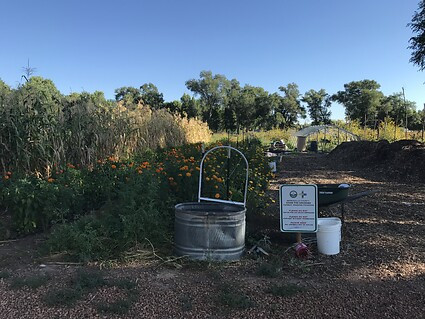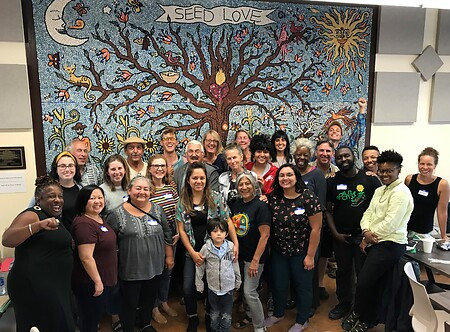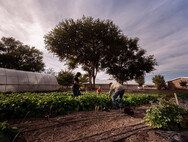
Campaign for Healthier Solutions
Local Food Solutions
 Across the United States, communities of color, low-income neighborhoods, and Indigenous peoples endure disproportionate exposure to toxic chemicals and pollution that harms their health. Many of these communities also lack access to healthy foods. These combined impacts contribute to higher rates of chronic conditions such as asthma, diabetes and heart disease.
Across the United States, communities of color, low-income neighborhoods, and Indigenous peoples endure disproportionate exposure to toxic chemicals and pollution that harms their health. Many of these communities also lack access to healthy foods. These combined impacts contribute to higher rates of chronic conditions such as asthma, diabetes and heart disease.
With the COVID-19 health and economic crisis now upon us, food security is a growing concern for people in this country. Millions of people, particularly the disproportionately impacted, rely on dollar stores for food and other household needs, even though dollar store products are often filled with toxic chemicals. Roughly 75 percent of people in the US live within five miles of a Dollar General store, for example, and the discount chain recently became one of the top 25 food retailers in the nation.
For these reasons, our coalition of community leaders, public health experts, and environmental and economic justice advocates are encouraging Dollar General to sell locally-grown fruits and vegetables at four stores in low-food access neighborhoods in Albuquerque, New Mexico. This would be an opportunity for Dollar General to build its business, improve access to healthy foods in disproportionately impacted communities, and bolster the local economy by supporting area farmers. Our goal: to demonstrate that a sustainable, local procurement policy is possible, profitable, and replicable for commercial adoption by Dollar General’s more than 16,000 stores across 44 states.
 A pending collaboration between Dollar General and local food producers, supported by anchor institutions in the community and other project partners (see list below), would reflect a commitment to building community health and improving food access. Together we can demonstrate how retailers, healthcare institutions, community groups, and local food producers can advance public health, equity and economic benefits by increasing access to healthy, affordable food.
A pending collaboration between Dollar General and local food producers, supported by anchor institutions in the community and other project partners (see list below), would reflect a commitment to building community health and improving food access. Together we can demonstrate how retailers, healthcare institutions, community groups, and local food producers can advance public health, equity and economic benefits by increasing access to healthy, affordable food.
The benefits of sustainably produced, local food include: fresher, more nutrient-dense options for consumers; less opportunity for contamination from pesticides and other harmful chemicals; support for the local economy; and improved community health and resilience. Purchasing produce from local farmers also improves quality by shortening the supply chain, reducing environmental and climate impacts caused by long-distance transport.
What’s more, demand is increasing around the country for locally-grown, healthy foods. Research demonstrates the majority of consumers across the income spectrum, including food stamp recipients, value local foods and are willing to pay more for them. With local food buying on the rise a successful collaboration with Dollar General in New Mexico would be a positive and exciting model for replication and commercial adoption in other regions.





